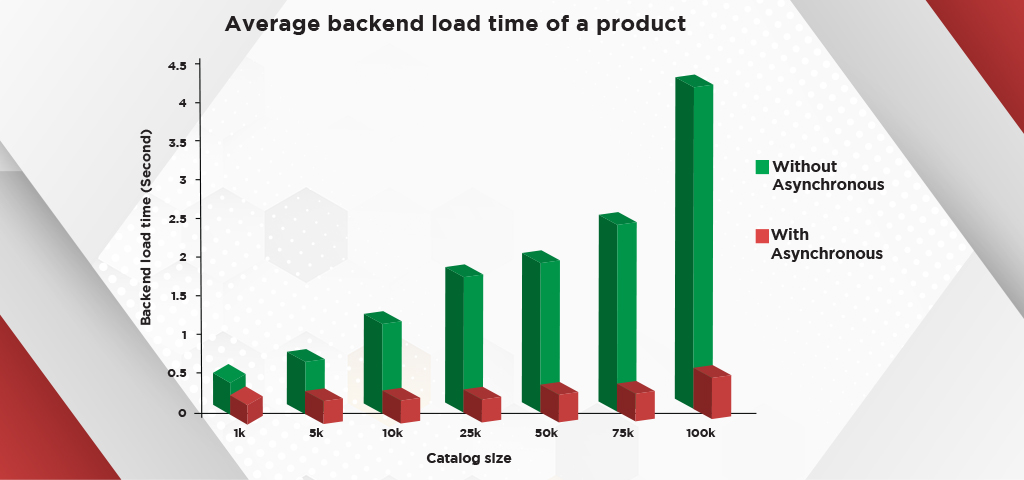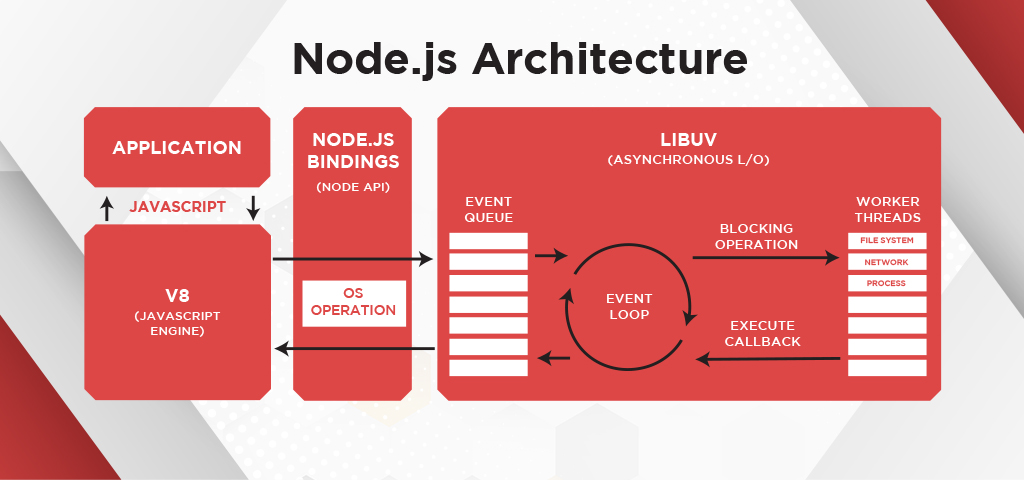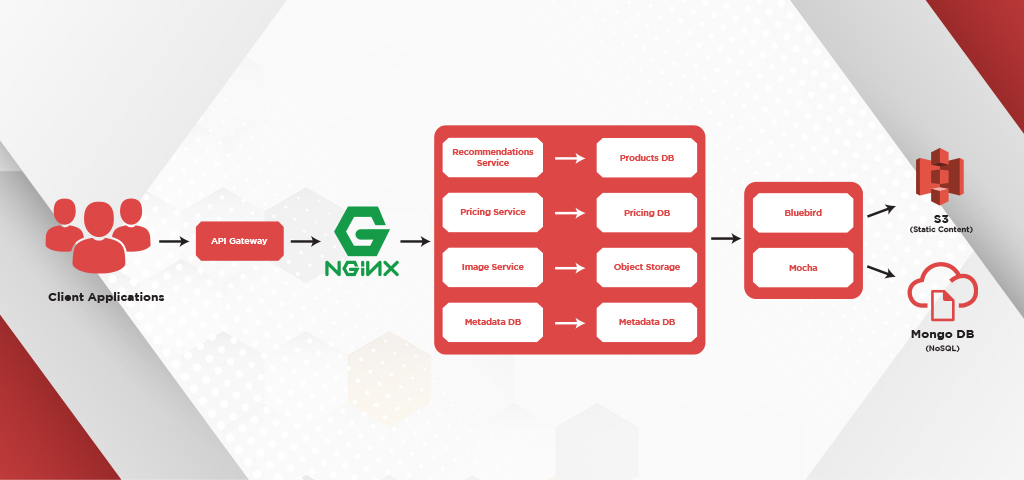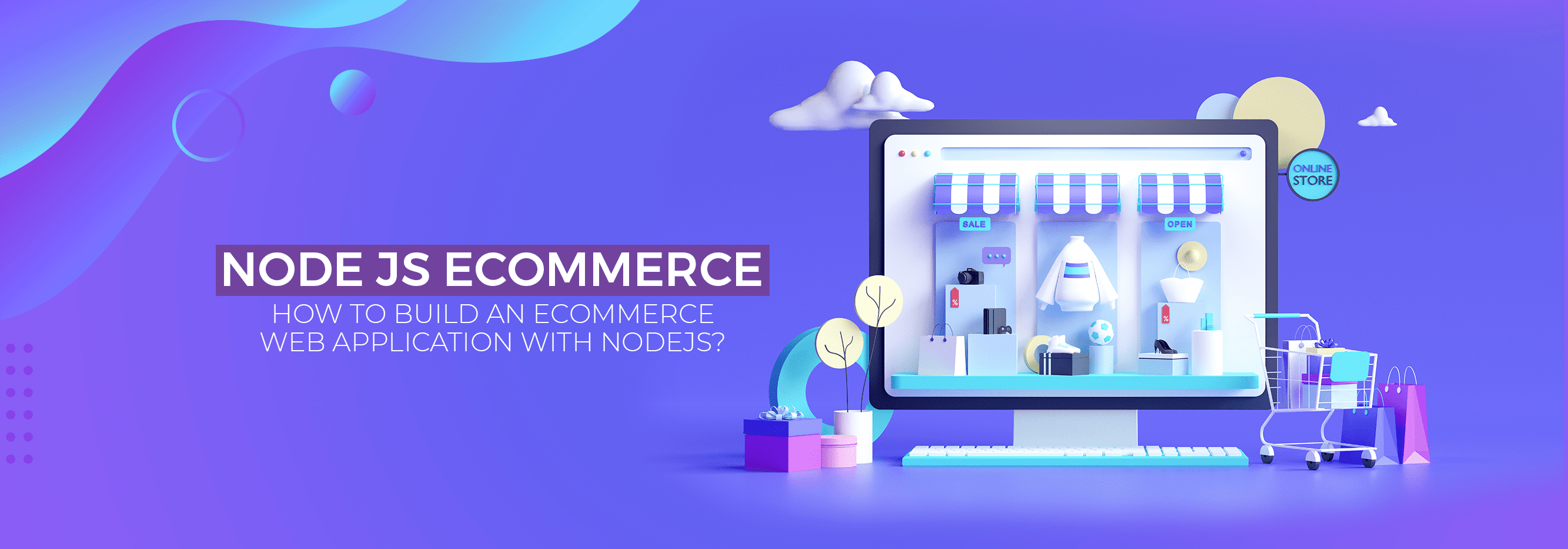One of the very first recorded online sales was made in 1994, a man sold the band Sting’s CD through an American retail platform known as NetMartket. This was the first commercial transaction done through the World Wide Web.
Any commercial transaction facilitated by the internet comes under the category of eCommerce.
eCommerce or electronic commerce is another term for the online retail experience. An online transaction for products or goods or services is called eCommerce. It is a virtual platform for the trade of physical products and services.
Digitization of businesses has been on a constant and steady rise in the last decade, and the onset of the pandemic has made it all the more necessary for businesses to have an online retail platform to meet their customers’ expectations.

As you can see, there’s a spike in the percentage of eCommerce retail sales in 2020, and it is projected to reach an astounding figure of $6.39 trillion by 2024.
With the increase in competition, brands are trying to find new and improved ways to deliver impeccable online retail experiences for their customers.
That’s where the NodeJS eCommerce framework shines!
Affordability, simplicity and efficiency are some of the reasons why the NodeJS eCommerce framework became an instant hit for developing eCommerce web applications.
Let’s delve deeper and understand how to create a NodeJS application from scratch.
The Challenges/Problems Faced by the eCommerce Industry
eCommerce is booming now more than ever, and it has become an indispensable part of our daily lives. This resulted in a rapidly growing number of online consumers demanding seamless online retail experiences.
With the growing popularity, new challenges and problems faced by the eCommerce industry are also at an all-time high. Due to poor execution and choice of technology during eCommerce website development, many businesses end up delivering inadequate features and sluggish user experiences.
Here are some of the major challenges and problems faced by the eCommerce sector:
Problem 1: Building a complex and scalable eCommerce interface is tougher than it seems.
eCommerce web applications rely on a plethora of features and elements like product catalogues, logistics, shipping, suppliers, payment gateways, etc. And these elements need to be available and completely functional at all times, making it quite difficult to maintain a seamless user interface with high-performance 24×7.
There are thousands of requests and data exchange happening at the same time, which can cause your eCommerce website to get sluggish or inefficient from time to time.
88% of online customers claim that they’re less likely to use the same eCommerce website after a bad online retail experience. Retaining customers is the main purpose of every business, and an inadequate eCommerce website eventually ruins your brand loyalty.
Problem 2: The frontend of a web application is worthless without a steady and secure backend.
Many developers put more effort into building an appealing user interface to make your eCommerce website look more welcoming and engaging. Although is it necessary to spruce up your website for attracting potential customers, without a stable backend of an eCommerce website, the frontend is bound to fail.
The main reason for the slow load times of websites is a poorly built backend of an eCommerce website, which is ultimately the backbone of your web application.
Online consumers expect instant response and seamless navigation throughout your web application, and an unstable backend can cause your loyal customers to leave as the internet is a place of endless options.
The bounce rate of your customers increases significantly if your website doesn’t load instantaneously.
1-3 seconds of load time = 32% increase in bounce rate;
1-5 seconds of load time = 90% increase in bounce rate;
1-6 seconds of load time = 106% increase in bounce rate;
1-10 seconds of load time = 123% increase in bounce rate.
Problem 3: Inadequate or insufficient languages and frameworks for eCommerce website development
There are many eCommerce development languages and frameworks, but most of them fail to provide a completely secure and stable eCommerce website.
Most frameworks don’t have a powerful community to back them up and aid web developers when they face issues or problems in the development process.
Some of the frameworks fail to efficiently support and stream different formats of media and data on the website.
Many web development languages don’t possess enough add-ons and plug-ins to deliver the desired functionality.
Some web development frameworks aren’t even open-sourced, which closes the door for many developers to utilise the framework for building efficient web applications. This makes it extremely difficult to find proficient web developers.
Overcoming Challenges with NodeJS eCommerce Development
NodeJS eCommerce framework is the most effective solution to the challenges faced by the eCommerce sector. NodeJS online stores are a force to be reckoned with, here’s why:
- NodeJS efficiently bridges the gap between frontend and backend with an asynchronous nature, enhancing website load times and simplifying the development process.

Evidently, the NodeJS eCommerce platform with asynchronous communication provides a much smoother and more efficient backend load time.
- NodeJS eCommerce framework can easily handle concurrent users simultaneously.
- eCommerce development needs to constantly update and grow, and the NodeJS web app’s high scalability lets you keep up with it.
- NodeJS eCommerce platform has a large and powerful community to support and guide developers in the website development process.
- With numerous add-ons and plug-ins, the NodeJS web app can provide endless features and functionalities.
- All kinds of media and data can be streamed in a NodeJS online store.
- It is an open-sourced language that enables high flexibility for web developers.
NodeJS, The Stronghold of the Backend
NodeJS was developed by Ryan Dahl in 2009, and its popularity has been skyrocketing ever since its inception.
NodeJS is a JavaScript-based runtime environment on Chrome’s V8 engine. It is open-sourced and used to develop highly scalable and fast eCommerce web applications.
NodeJS eCommerce platform utilises a single-threaded event loop architecture, which makes it easy to process concurrent requests and provide a flawless backend for your eCommerce website.

With 80.7k stars and 20.9k forks on GitHub, NodeJS is used by 230k websites and 115k unique domains globally.
NodeJS site examples
- eBay handles live connections to servers for 200 million users with the help of NodeJS web app implementation.
- Walmart uses the NodeJS eCommerce platform to integrate multiple services and applications to deliver various functions via one platform.
- Groupon uses the NodeJS eCommerce framework to reduce resources while supporting high traffic and quick load times.
- PayPal unifies their backend and frontend with javaScript using NodeJS web app implementation, providing efficient security features for the biggest online payment gateway.
With amazing documentation and an easy to learn Python-based language, the Django eCommerce website is also widely used among developers.
Learn more about the comparison between NodeJS online stores and Django eCommerce websites.
Different Options for NodeJS eCommerce Development
Till now, we have discussed the problems of the eCommerce industry, NodeJS solutions for eCommerce and an overview of the NodeJS eCommerce framework.
Let’s dig deeper and examine the options to create app using NodeJS.
Option 1: Developing a NodeJS online store with MEAN/MERN stack
The MEAN/MERN stack is an ideal choice for full-stack eCommerce website development. Let’s dissect it further:
M: MongoDB: A NoSQL for efficient database management
E: ExpressJS: A backend web framework providing a simplified interface
A/R: AngularJS/ReactJS: A front-end web framework providing a seamless user experience
N: NodeJS: A JavaScript backend runtime environment
MEAN/MERN stack lets you develop web applications for free with a completely JavaScript-based and open-sourced framework.
Here’s how the MEAN stack functions:
- Client-side requests are processed with AngularJS
- The request reaches NodeJS, which controls the backend
- The request reaches ExpressJS, which triggers a database access
- MongoDB retrieves the required data and passes it on to ExpressJS
- ExpressJS transmits the response or answer to NodeJS, then it is relayed to the front through AngularJS
With high consistency, flexibility, and scalability, the MEAN stack can handle a minimum of 10k users, making it one of the best choices for starting a NodeJS online store.
Companies that use MEAN stack:
- Accenture
- Fiverr
- UNIQLO
- Sisense
- Vungle
Option 2: Develop a NodeJS online store with microservice architecture
MEAN/MERN stack development is amazing for starting your eCommerce web application, but for anticipating millions of users, microservices are the way to go!
Using the NodeJS eCommerce platform with microservices is highly recommended because it can support various microservice frameworks like SenecaJS
Unlike the MEAN/MERN stack, web apps built with microservices don’t require costly and heavy maintenance.
NodeJS eCommerce platform can utilise microservices to delegate different processes to different components of services, which are all integrated and connected through APIs.
Microservices allow you to scale and update different components of services and functions independently, eliminating the need to update the web application completely.
Take a look at the architecture used while developing with microservices in the NodeJS eCommerce platform:

Microservices helps you overcome many challenges faced while developing with MEAN/MERN stacks. For enterprise-sized companies, utilising the Microservices feature is the ideal option for NodeJS eCommerce development as it can handle millions of users.
eBay adopted the microservices architecture to maintain and manage more than 1 billion users.
NASA employed this option to transfer their complete database and other components to the cloud.
Option 3: Developing a NodeJS online store with different NodeJS frameworks
50% of developers choose NodeJS for its versatile and efficient frameworks.
Various NodeJS frameworks can be used to serve different purposes while developing eCommerce web applications.
Types of NodeJS frameworks:
MVC frameworks: NodeJS frameworks with the widely known Model-View-Controller architecture.
MVC full-stack frameworks: NodeJS frameworks with the Model-View-Controller architecture that can be efficiently used for both frontend and backend development.
REST API frameworks: REST API NodeJS frameworks are used to create high-performing web apps quicker and more efficiently.
Top 7 NodeJS frameworks:
- ExpressJS: Rapid server-side development for single page, multi-page and hybrid web applications;
- MeteorJS: Isomorphic development ecosystem for real-time and cross-platform applications;
- SocketIO: Auto detection and correction of errors for real-time web and mobile applications;
- SailsJS: Lightweight server-side framework for enterprise-scale web applications;
- LoopbackIO: The best NodeJS REST API framework with full-stack development and easy to use command-line interface;
- KoaJS: In-built error management tools and a lightweight structure for high-performing large-scale web applications;
- NestJS: TypeScript language and an agnostic platform for enterprise-grade web applications.
For an in-depth examination of the 7 Best NodeJS Frameworks for Web Apps in 2021, click here.
Final thoughts
With the ever-increasing popularity of online shops, the eCommerce industry has been facing many challenges and problems.
NodeJS eCommerce platform is the ultimate solution to effectively overcome the challenges faced by the eCommerce industry. NodeJS is an open-sourced run-time environment that provides simple, secure, and scalable eCommerce website development.
There are many ways to utilize the NodeJS eCommerce platform via MEAN/MERN full-stack development, Microservices, and different NodeJS frameworks.
MEAN stack provides a perfect start for your eCommerce operations, handling a minimum of 10k users.
NodeJS eCommerce platform with Microservices can handle enterprise-grade web applications with millions of users.
Different NodeJS frameworks can also be employed according to your eCommerce web development needs and requirements.
If you have further queries regarding NodeJS eCommerce web development, feel free to contact us.
With a wide range of clientele and 16+ years of hands-on experience, Communication Crafts provides expert NodeJS developers, delivering performance-driven, scalable and secure custom enterprise NodeJS solutions.
Building your present, for a better future.
Looking for bespoke NodeJS web and mobile app development solutions?
You demand, we deliver!
 Blog Communication Crafts
Blog Communication Crafts






